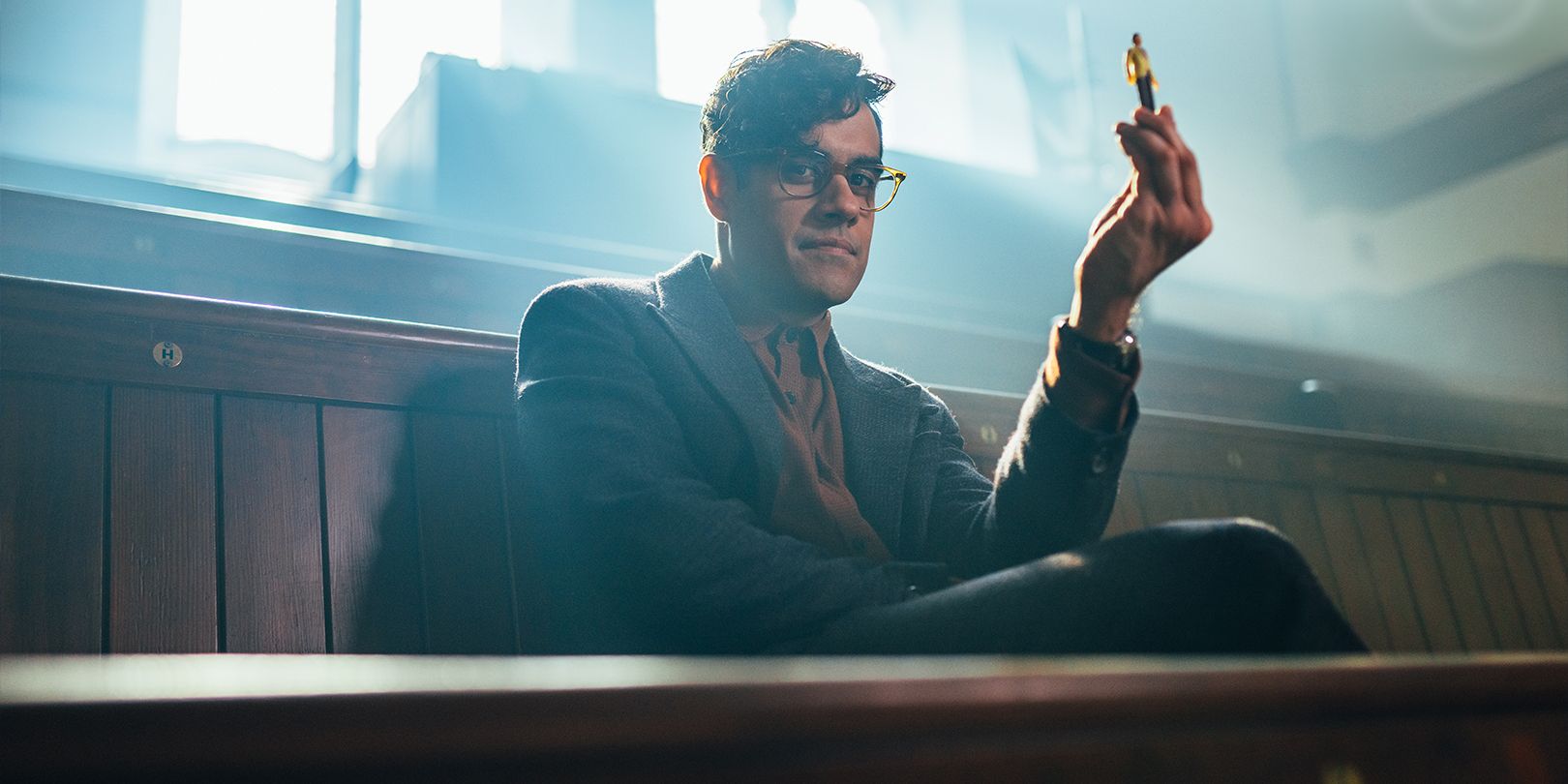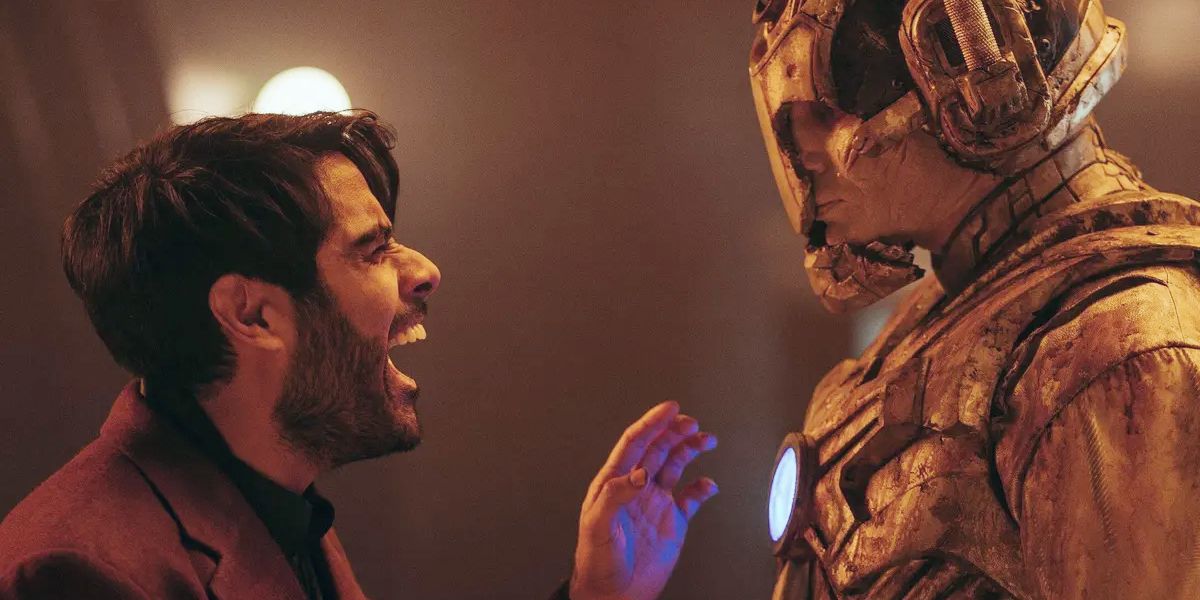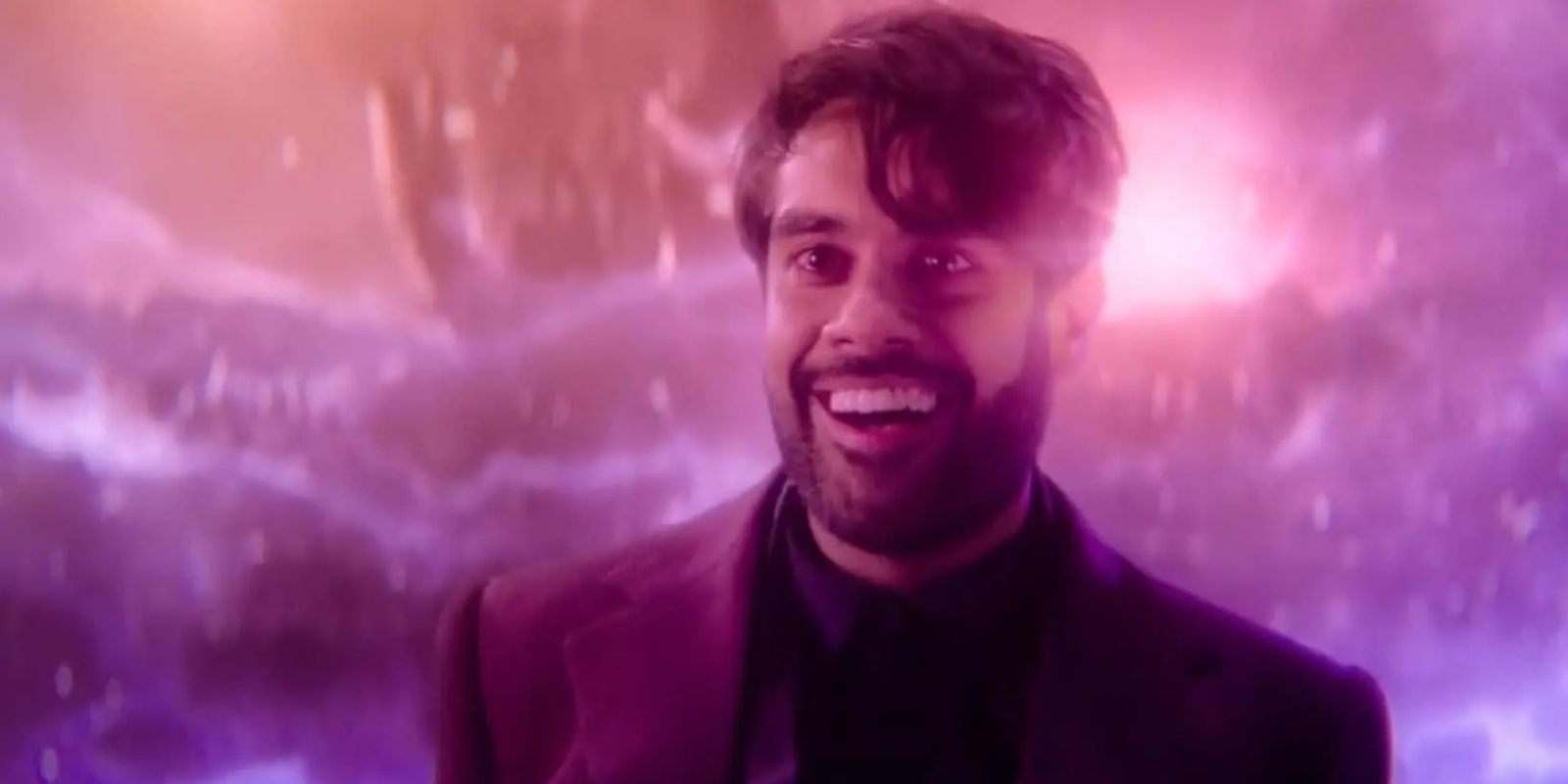This article contains spoilers for the episode, "The Power of the Doctor."The latest Doctor Who special, “The Power Of The Doctor,” showed the end of Jodie Whittaker’s run as the famous Time Lord — but it was so much more than that. It was also the end of her era’s incarnation of her famous enemy, the Master. The episode was a climactic, emotional rollercoaster, but it wouldn’t be what it was without the story’s antagonist. The other rogue Time Lord returned terrorize the Doctor and all she holds dear, this time with the Cybermen and Daleks at his beck and call.
This is the Master’s grandest, most complex scheme yet, and he needs all of his knowledge from over the centuries to do it. And by the same token, actor Sacha Dhawan calls upon those who portrayed the Master before him to deliver his most powerful performance as the Doctor’s greatest enemy. Just like the Thirteenth Doctor, he goes out with a bang.
In “The Power of the Doctor,” Dhawan draws on all the aspects of the Master that make the character great. Hints of Missy are visible as he taunts Ace and Tegan, calling them “darling” and reminiscing fondly on the ways he hurt them both. His flippant attitude as he’s dragged into UNIT headquarters echoes that of both New Who Masters before him. However, he calls upon Anthony Ainley’s portrayal in his attitude towards his ancient adversary. Like the Master who faced the Seventh Doctor in the 80s, Dhawan’s character is, above all, an adversary of the show's protagonist. It is this aspect of their relationship that both the writing and the actor’s performance get right, especially in this final episode.
The Master has always been a manipulator. Only someone truly skilled at influencing others could get an army of both Daleks and Cybermen on his side, His ploy to take on the Doctor’s body and discredit their name is about more than his magnificent capacity for manipulation. It’s also about the satisfaction he takes in how much pain this plan will cause for both the Doctor and their loved ones. Unlike Michelle Gomez as Missy or Roger Delgado as the original Master, Dhawan’s Master truly wants to see the Doctor suffer. He doesn’t just want to defeat her; he wants to do it in the most painful way possible.
This desire is on full display throughout the episode, but no more so than when the Master is about to execute his ultimate strategy: using forced regeneration to force the Doctor to regenerate into him. The needle drop of Boney M.’s song “Rasputin” was perhaps inevitable in this episode, but it’s used in a clever context: the Master revels in his imminent success while the Doctor watches helplessly. It seems like the moment when the Doctor would come up with a last-ditch strategy, or a companion would burst in to save the day — but instead, the Master triumphs, hijacking the Doctor’s body. The process is both physically and mentally painful for the Doctor, and the Master cackles gleefully the entire time. There’s no hint of remorse, not even feigned regret like Missy might show. Dhawan’s Master finds joy in causing pain, especially the Doctor’s, and his sadism sends chills down viewers' spines.
Yet, as always, the Master's motives are more complex than simply sowing chaos and destruction. There has always been a begrudging sort of respect between the Doctor and the Master, which is portrayed different ways across each Time Lord's different incarnations. Dhawan's Master seems eager to deny this aspect of their relationship, belittling and tearing down the Thirteenth Doctor at whatever chance he gets. However, when he takes on the Doctor's body, it's clear that he wanted this for several reasons. He does want to besmirch the Doctor's good name, but he also revels in becoming the Doctor. The Master dresses in an outfit consisting of Sylvester McCoy's sweater vest, Tom Baker's iconic scarf, and plenty of other items from various incarnations. Perhaps most powerful, though, is the final line he utters as the Thirteenth Doctor returns to her body, expelling the Master:
"Don't let me go back to being me."
In that moment, the Master's demeanor changes from usual his scheming, vindictive self to one of a desperate individual. There's a part of him that desperately wants to be anything but the Master. This line betrays that this incarnation of the Master still feels some sense of envy for what the Doctor is. Perhaps it's the respect she commands; perhaps it's her ability to forge connections with others. Regardless, it's clear that the forced regeneration was about more than killing the Doctor or manipulating the people of Earth. The Master is famous for manipulation, and fans of the franchise know better than to trust a word that comes out of his mouth. But Dhawan's delivery in this scene is raw and honest, and offers perhaps the most genuine glimpse into his character.
There's much to suggest that this is the last time Dhawan's Master will appear in Doctor Who. From an out-of-universe point of view, the series is changing showrunners and almost all the rest of the cast is being replaced. From an in-universe perspective, it seems clear that the Master was destroyed along with his artificial planet. Not to mention, Rasputin himself (who, as shown in this episode, is an identity of the Master) died in 1916, the year the Thirteenth Doctor foiled this particular scheme. But, much like the Doctor herself, he left on a high note. "The Power of the Doctor" showed all the facets of this particular Master, before giving him a magnificent sendoff. Much like all the other recurring adversaries in Doctor Who, it's almost certain that we haven't seen the last of the character. Whoever steps in to portray the evil Time Lord next will have big shoes to fill.



